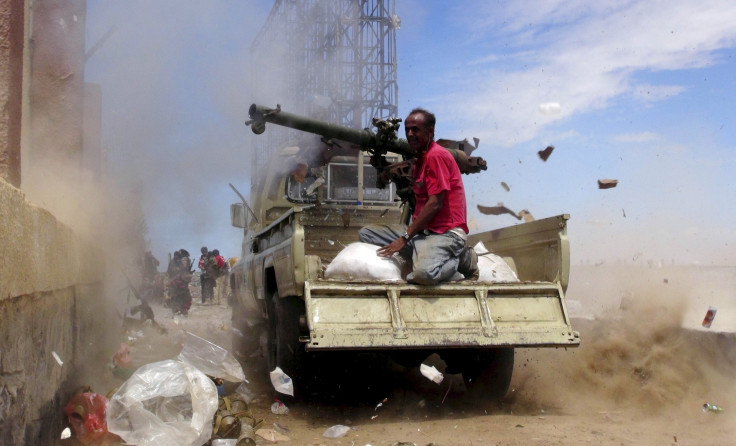War In Yemen: Yemeni Government Refuses Talks With Houthis, Rejects Kerry Truce Announcement

Yemeni Foreign Minister Abdel Malek al-Mekhlafi rejected Tuesday a truce announcement made earlier that day by Secretary of State John Kerry and Houthi rebels, claiming Yemen's government was not included in the negotiations.
Kerry announced both the Saudi-led military coalition and Houthi militants, known officially as Ansar Allah, had agreed to a cessation of hostilities beginning Thursday. He said he reached the breakthrough after approaching regional actors the United Arab Emirates, a part of the Saudi-led military campaign, and Oman, which maintains a relationship with the Houthis.
Kerry said the Houthis had agreed to "abide by the terms of the April 10 cessation of hostilities beginning on Nov. 17, provided the other party implements the same commitment and thus far the Emiratis and the Saudis...they have both agreed to try to move forward with this," according to Reuters.
Mekhlafi, however, responded by saying the Yemeni government was not informed of the deal and would not respect it. In a tweet, he criticized Kerry and the U.S.' attempts to intervene without the consent of President Abed Rabbo Mansour Hadi's government.
The Gov is not informed of what Sec. Kerry announced.Any attempt to reach an agreement with the houthis away from the Gov will thwart peace
— عبدالملك المخلافي (@almikhlafi59) November 15, 2016
The conflict, which has devastated Yemen for over a year and a half and killed over 10,000 people, began in late 2014 when the Houthis, which represent Yemen's Zaidi Shiite minority, rebelled against Hadi's beleaguered government. The resulting chaos turned into civil war and in 2015 the Houthis forced Hadi to the capital of Sana'a to the southern city of Aden. In response, Saudi Arabia intervened on his behalf.
Saudi Arabia accuses the Houthi group of being an Iranian proxy power and routinely conducts airstrikes against it. These strikes, believed to be responsible for most of the war's casualties, have been the source of international criticism both by human rights groups and state allies such as the U.S. The resulting chaos has created one of the worst humanitarian crises in the world and led to increased activity by Islamic extremist groups such Al-Qaeda in the Arabian Peninsula and the Islamic State group.
© Copyright IBTimes 2025. All rights reserved.






















